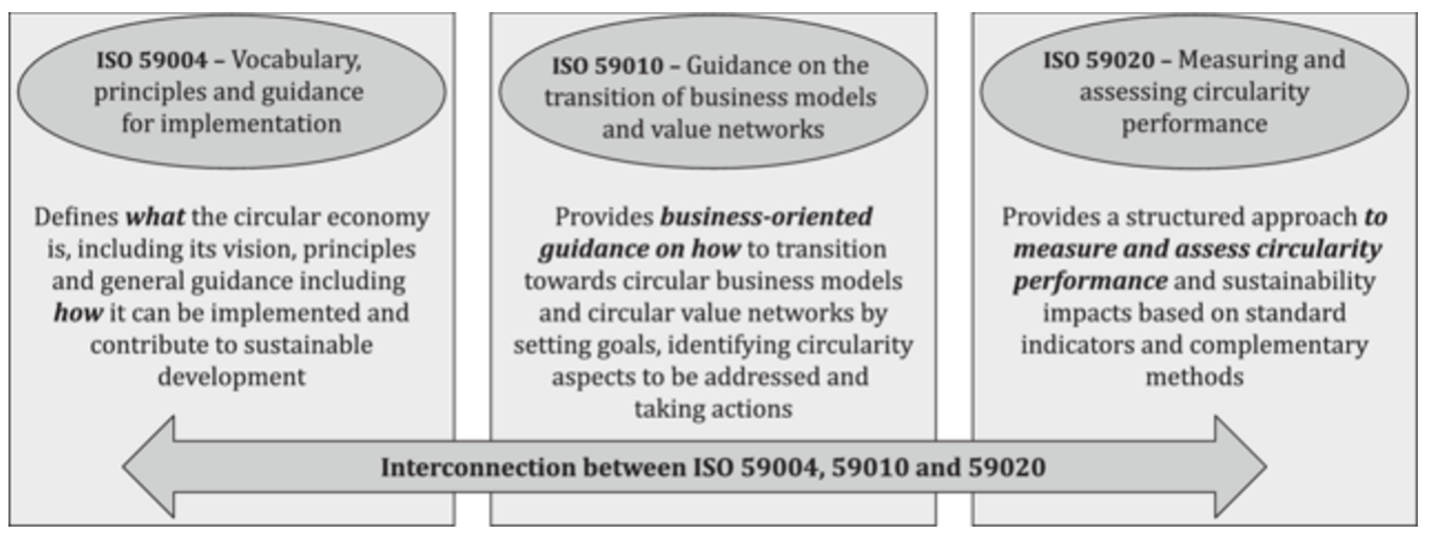August 2024 The Shift e-newsletter
Electronics Circularity Webinar | ISO Circularity Standards | Upcoming Training
Free Webinar:
Towards Sustainable Electronics: Exploring IC Reuse for Circular Economy Transformation
DATE: August 15, 2024
TIME: 1pm-2pm ET
PRESENTERS:
Dr. Amos Ncube, Senior Sustainability Analyst, EarthShift Global
Nowell Stoddard, Junior Sustainability Analyst, EarthShift Global
DESCRIPTION:
This presentation shares findings from recent research conducted by ESG in conjunction with NIST. The study explores the importance of responsible end of life (EOL) management of integrated circuits (ICs or chips), with a particular focus on the possibility of IC reuse as an avenue to address the high impacts of chip manufacturing and the increasing issue of electronic waste (e-waste) globally. It emphasizes the need to shift from a linear economic model to a circular one, highlighting environmental and health risks associated with improper e-waste disposal and the advantages of recycling and especially reuse of that waste.
The study explores the challenges and potential benefits of systematic recovery of ICs with the goal of reuse. By reviewing academic literature and engaging with stakeholders to gain industry insights, this perspective paper proceeds to evaluate the various factors influencing the feasibility of IC reuse, including regulatory frameworks, market trends, technological advancements, and consumer behaviors. Gaps in research and implementation related to IC harvesting techniques, reuse protocols, and the development of market incentives are identified. Based on these insights, the authors call for collaborative efforts between OEMs (Original Equipment Manufacturers) and IC harvesters to address the identified challenges, emphasizing the importance of further research to improve testing protocols, advance recovery technologies, and establish market mechanisms that support IC reuse. The authors further argue that the proposed collective approach will be able to create a conducive environment for IC reuse and the broader adoption of circular economy practices in the electronics sector.
Dr. Amos Ncube is a seasoned sustainability and environmental management professional with more than 10 years of global experience. He offers managerial and technical expertise to industries, governments, and international agencies. Amos has successfully executed various projects and industrial environmental initiatives across Europe, North America, South Asia, and Southern Africa.
His notable contributions include significant work within the EU's ReTraCE program, where Amos applied methods like LCA and EMergy accounting to analyze diverse industrial sectors. His research has resulted in impactful journal publications which can be found on his ResearchGate page. With a background in consulting for the Zimbabwe National Cleaner Production Centre, Amos provided crucial guidance on environmental protection and compliance.
As a Marie-Curie fellow, Amos holds a PhD in Circular Economy and Sustainability, earned through intensive research on the potential environmental implications of transitioning to Circular Economy and Bioeconomy models across industrial and non-industrial sectors. He holds other degrees from the University of Zimbabwe and Tomsk Polytechnic University (Russia), underscoring his comprehensive expertise in the field and international exposure.
Nowell Stoddard initially joined EarthShift Global as an intern in support of the IC Circularity project with NIST and has contributed to the research and publication of the project results. Prior to joining ESG, Nowell taught math & science at the high school and collegiate levels.
He earned a bachelor’s degree in Physics from Bard College and is expected to complete his master's degree in Physics from Radbound University in 2024.
Three Newly Published ISO Standards: A Pivotal Step Toward Adoption of Circular Business Practices
As more organizations embrace circularity, the standards will enable the systems thinking and business model reconsideration needed for sustainable business practices

Figure 1 - How the three new ISO Circularity Standards are interconnected. Source: ISO
In a pivotal step towards mainstreaming of circularity in business, the International Organization for Standardization (ISO) has published three new standards that provide organizations with powerful new tools and guidance to implement, measure, and enhance circular practices.
The transition towards a circular economy represents a transformative shift from the traditional linear economic model, in the pursuit of sustainable development. ISO's circularity-related standards mark a significant milestone in facilitating this shift, akin to their promulgation of Life Cycle Assessment (LCA) standards in the 1990s, which significantly advanced the acceptance and implementation of LCA.
Similarly, the new ISO circularity standards will play a crucial role in promoting the systems thinking and business model reconsideration essential for achieving circularity. They provide an important common framework that will help organizations of all sizes develop approaches that are both well-suited to their unique situations and well-aligned with efforts elsewhere in their industries and supply chains.
Upcoming Online Training
Social Impact Assessment, Sustainability-ROI
September 11-12, 2024
Impact Assessment Methods
September 18, 2024
Introduction to Sustainable Return on Investment (S-ROI)
September 18, 2024
Introduction to Life Cycle Assessment
October 2-3, 2024
Integrating Sustainability into the Organization
October 16-17, 2024
Sustainable Return on Investment (S-ROI)
October 16, 2024
Methods for Evaluating the Social and Economic Pillars of Sustainability
October 23, 2024